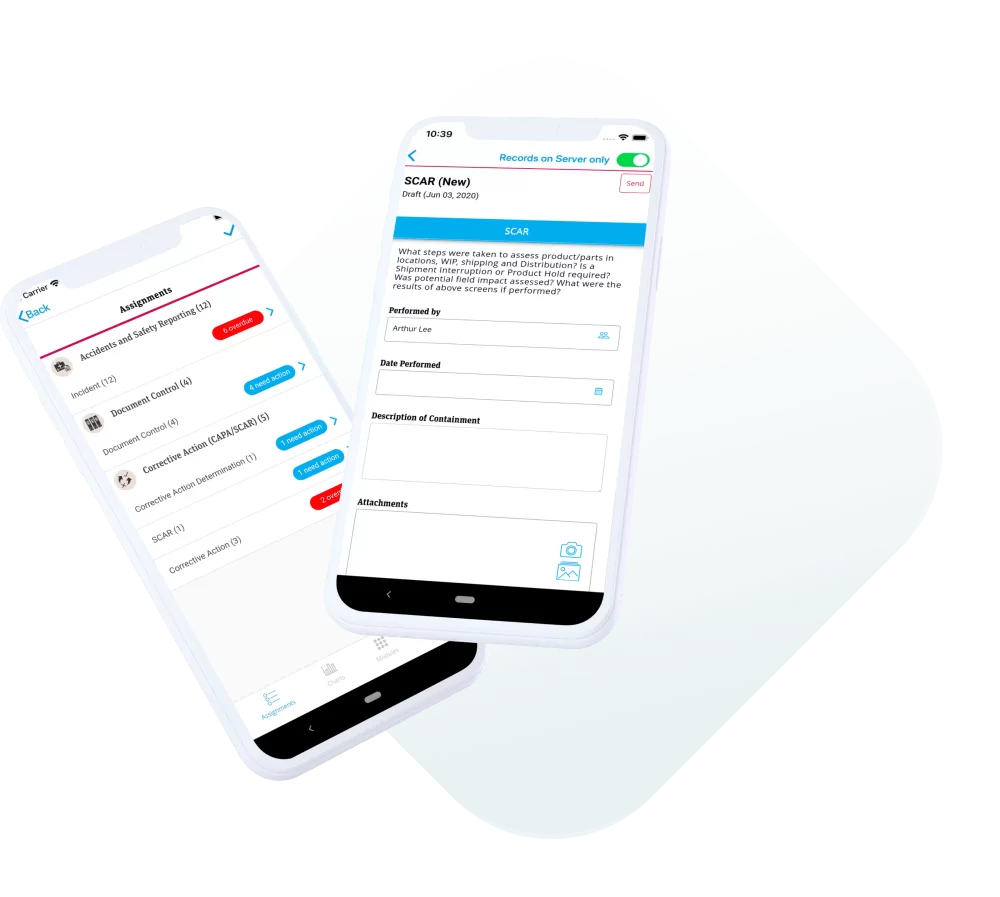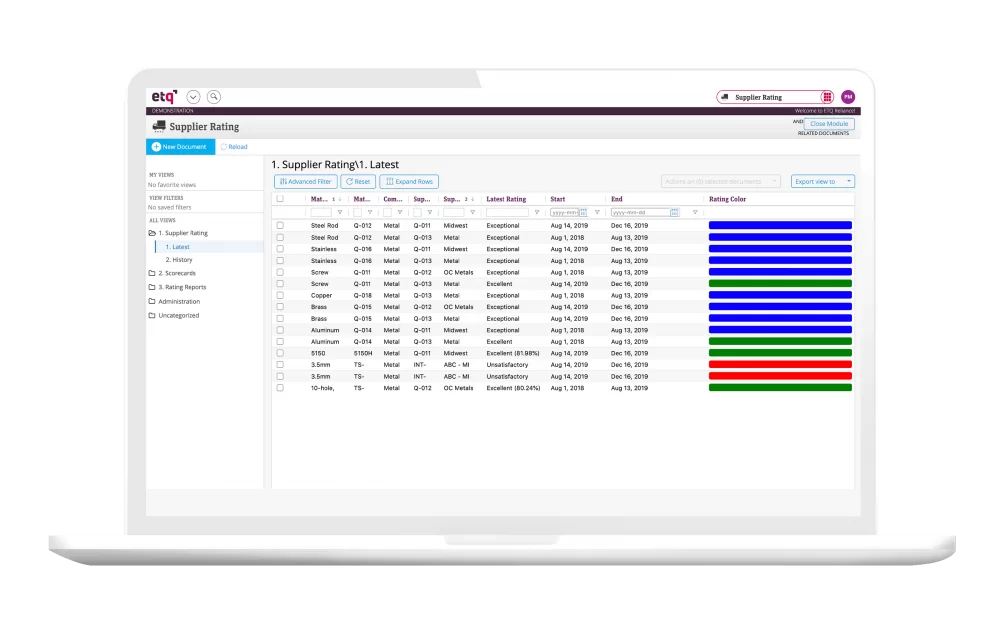Supply Quality Management FAQ Page
What is supply chain quality management?
Supply chain quality management is the act of upholding supplier quality. That means ensuring raw materials, components, or subassemblies deliver at a level of quality that supports safe and effective performance in the finished product.
How can supply chain management help PPAP quality?
PPAP is the process of adding new parts to a production process. When these parts are sourced from suppliers, they must be of the highest quality to support the finished product. Supplier quality helps ensure that the finished good performs safely and meets customer demands.
Can PPAP software reduce PPAP quality risks?
Yes. PPAP software helps reduce PPAP quality risks by making it easier for quality managers to evaluate products from a new supplier. PPAP software enables you to store, access, and analyze documentation from the vendor and then set up an inspection schedule to ensure that the new parts are of the promised quality.
What is a SCAR corrective action?
A supplier corrective action request (SCAR) is a report that details a blemish, defect or nonconformance in delivered parts or raw materials from a supplier. This request also includes a step-by-step process for the supplier to remediate these blemishes in future deliveries.
Does SCAR software improve quality issues?
Yes. When issuing a SCAR, it is crucial to maintain clear lines of communication between you and your vendor. You must also confirm that the supplier is fulfilling the steps laid out in the SCAR and learn how they’re doing that. SCAR software helps you keep this all on track.
Is quality control important in supply chain management?
Your product cannot exceed the quality of the poorest-quality component or material within it. In other words, you can create everything the right way except for one small component, but if that component breaks, it can ruin the performance and functionality of your finished goods. For that reason, quality control is critical.
How is performance measured in supply chains?
You can measure supply chain performance in three ways:
1. Delivery: Can the product be delivered on time to the correct location?
2. Quality: Does the product conform to the internal and external compliance regulations that govern the customer’s industry?
3. Transparency: In the event of a defect, did the supplier include enough documentation to identify and mitigate the source of the nonconformance?
How can I improve supply chain quality?
Improving supply chain quality means improving the delivery, quality, and traceability of raw materials and components. You can accomplish this by ensuring your suppliers have detailed access to information about your production requirements. You can also perform PPAP audits to weed out suppliers who can’t meet your criteria.
What are the five steps of supply chain management?
1. Plan: Determine how many materials you need to manufacture a product.
2. Source: Find suppliers who can sell you the raw materials and components you need.
3. Make: Assemble, test, and package the product.
4. Deliver: Find and use logistics channels to place your product in your customers’ hands.
5. Return: Create a logistic channel for RMA or defective goods. In addition, return defective or unneeded raw materials and components to suppliers when possible.
What is sustainable supply chain quality management?
Sustainable supply chain quality management means ensuring that a component is produced using renewable energy and materials. It also means ensuring this component can be recycled or composted at the end of the product lifecycle.
Why is quality important within the supply chain?
There are very few situations where you can fix a shipment from a supplier if it arrives in a state that’s either damaged or non-conformant with your processes. If you can use a shipment, then you can’t make your products. Therefore, you need to ensure consistent quality from suppliers to meet your standards for productivity.
How can supply chain quality be improved?
Use a quality management system (QMS) to increase supplier quality by instituting PPAP audits, creating nonconformance handling guidelines, and issuing SCARs when necessary.
How is quality measured in supply chain management?
Quality can be measured when shipments from suppliers pass inspection and sampling, when they arrive on time, and when they’re correctly labeled and packaged in a way that allows them to be ingested by your manufacturing process.
What is quality assurance in supply chain management?
Quality assurance is a joint commitment from quality managers and suppliers that components and raw materials are delivered per standards set down by the manufacturing organization at large.



